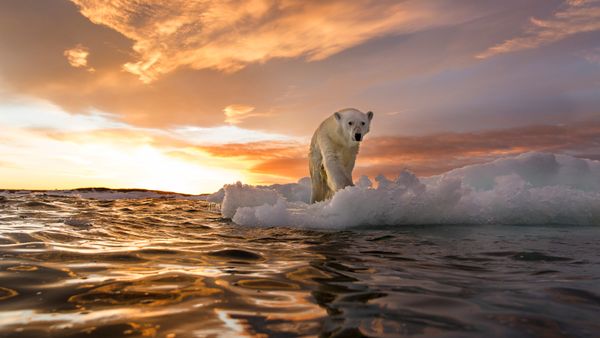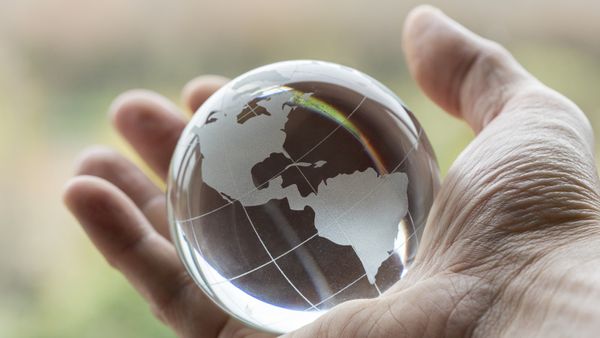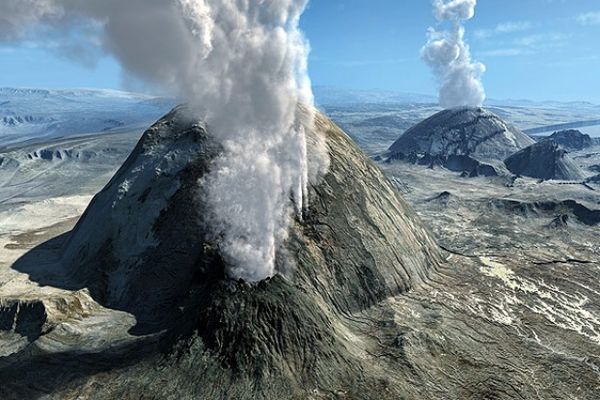If you could travel back in time five centuries, you'd encounter an Aztec empire nearly at the end of its run, fresh paintings from Raphael, Titian and Durer, and cooler temperatures across the Northern Hemisphere. This was a world in the midst of the Little Ice Age (1300 to 1850 C.E.) and a period of vast European exploration now known as the Age of Discovery.
If we looked 500 years into the future and glimpse the Earth of the 26th century, we might find that the planet is as different to us as it would have seemed to residents of the 16th century. But this largely depends on the relationship between human civilization and our natural environment — its past, its present and, of course, its future.
Effects of Climate Change
We've been altering Earth since at least the Agricultural Revolution of the Neolithic Age, and scientists disagree on exactly how many animal extinctions from even before that point should be lain at our feet [source: Boissoneault]. We manipulated the evolution of domestic plant and animal species, transformed the landscape and burned fossil fuels to power our way of life.
As a result, the planet's climate has changed — and is changing still. Some experts date the beginning of human climate change back to the Industrial Revolution in the 1800s, others to slash-and-burn agricultural practices in prehistoric times.
Either way, overwhelming scientific consensus indicates that human activity is almost certainly responsible for climate-warming trends over the last century.
According to NASA, carbon dioxide levels are up to 412 parts per million (ppm) as of December 2019, up from 316 ppm in 1958 when scientists first started tracking CO2. Global temperature was up 2.07 degrees Fahrenheit (1.15 degrees Celsius) since 1880, according to the National Oceanic and Atmospheric Administration. Meanwhile, Arctic ice declines 12.85 percent per decade, and sea levels rise 3.3 millimeters per year, says NASA.
In other words, our planet is warming, extreme weather continues to increase and our natural surroundings are changing.
These changes threaten the balance of already highly exploited natural resources. The United Nations warns that the resulting droughts, floods, heat waves and wildfires will only speed up land degradation and accelerate the danger of severe food shortages. Such shortages are exactly the catalyst that historically leads to social unrest, mass migration and conflict.
So on one level, 26th-century Earth will have had to come to terms with climate change. According to some computer models, melting Antarctic ice could cause sea levels to rise by 1 foot (0.3 meters) by the end of this century and 26 feet (8 meters) by the year 2300.
Technological Impact
Perhaps our 26th-century descendants will look back on their ancestors and see that we rallied before the flood. Perhaps they'll see that we made the sorts of technological, cultural and political changes necessary to prevent mass extinctions, political upheaval, environmental destruction and even civilizational collapse.
Or perhaps they'll look back on a people who willingly drove the world into ruin.
Along the way, however, our descendants will advance their technology — and while technology created the risks of anthropogenic climate change and nuclear warfare, it also provides us the potential to change course and improve.
Theoretical physicist and futurist Michio Kaku predicts that in a mere 100 years, humanity will make the leap from a type 0 civilization to a type I civilization on the Kardashev Scale. In other words, we'll become a species that can harness the entire sum of a planet's energy.
Wielding such power, 26th-century humans could be masters of clean energy technologies such as fusion and solar power. Furthermore, they'd be able to manipulate planetary energy to control global climate.
Still, futurists disagree on the timing of such a hypothetical upgrade in our technological prowess — and the upgrade is far from assured. As noted skeptic Michael Shermer pointed out in a 2008 Los Angeles Times article, political and economic forces could very well prevent us from making the great leap.
Technology has improved exponentially since the 1500s, and this pace will likely continue in the centuries to come. Physicist Stephen Hawking proposed that by the year 2600, this growth would see 10 new theoretical physics papers published every 10 seconds. If Moore's Law holds true and both computer speed and complexity double every 18 months, then some of these studies may be the work of highly intelligent machines.
Then again, he also predicted that overcrowding and energy consumption would make the Earth uninhabitable by 2600.
A Futurist's Perspective
What other technologies will shape the world of the 26th century? Futurist and author Adrian Berry believes the average human life span will reach 140 years and that the digital storage of human personalities will enable a kind of computerized immortality. Humans will farm the Earth's oceans, travel in starships and reside in both lunar and Martian colonies while robots explore the outer cosmos.
These technologies may come in handy, at least for a privileged few, if serious changes aren't put in place to deal with climate change.



